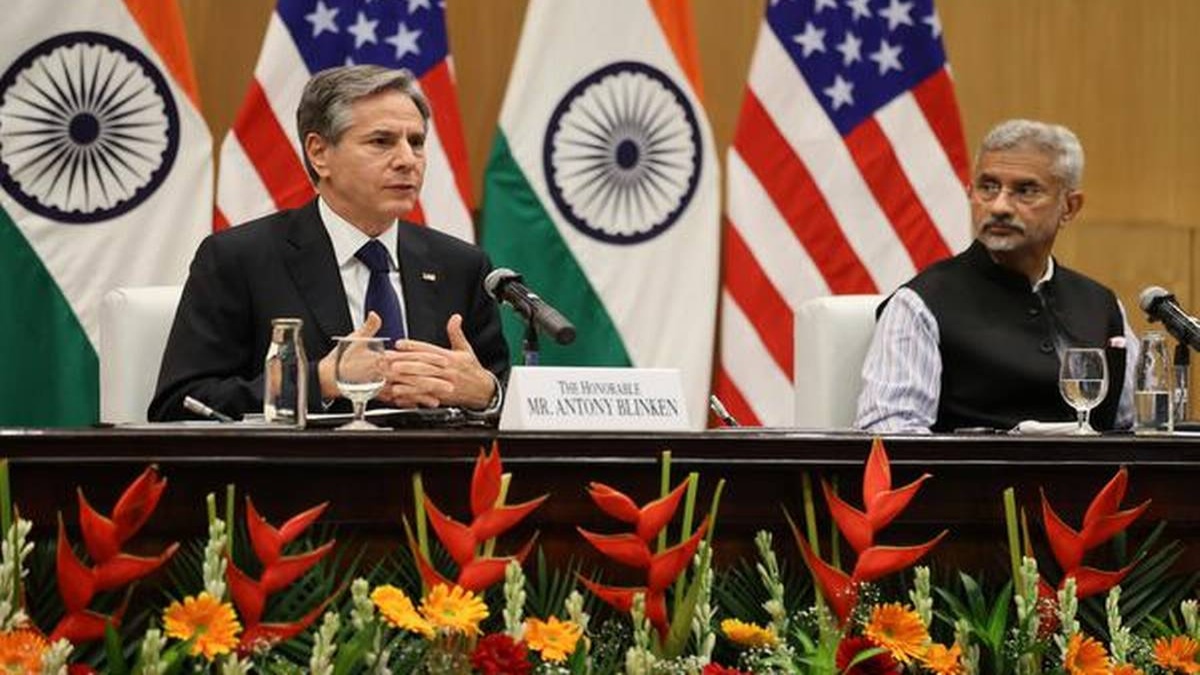


US Secretary of State Antony Blinken would have won many admirers for himself and his administration in India for the sincerity and seriousness with which he handled the question on the state of India’s democracy during the press conference he addressed in New Delhi on Wednesday, along with External Affairs Minister S. Jaishankar. In a ringing endorsement of Indian democracy, he described it as “a force for good”, while pointing out “that every democracy, starting with our own (the United States), is a work in progress”. He said when he discusses these issues, he does it with “humility” and added that “as friends (India and the US), we talk about these issues, we talk about challenges we face in renewing and strengthening our democracies. Humbly we can learn from each other. No democracy regardless of how old or large has it all figured out.” This is exactly what India has been saying—that no democracy is perfect, that they are a work in progress, but it’s ultimately the people of a democracy who make it great and there is no dearth of that “quality” in this country. Or as Secretary Blinken put it, “Like our own, India’s democracy is powered by its free thinking citizens.” That there was not even a whiff of “lecture” in his statements would have reassured many observers of India-US relations, who were worried that Blinken would give legitimacy to the spurious narrative of “backsliding of India’s democracy” being peddled by the mainstream western media, and a section of activists and analysts. During the press meet, Dr S. Jaishankar made it clear that India’s policies of the past few years came in the category of righting historical wrongs and that freedoms did not mean non governance and lack of governance. It appeared from Secretary Blinken’s statements that there was a realization of India’s position. Hence, his statements will go a long way in building trust between the two countries. It is also hoped that this will force the woke-Wahhabi public pushing the concocted narrative, to fall silent and concentrate on a matter that is of actual concern—how to prevent the takeover of the civilized world by a malign power.
As EAM Jaishankar pointed out, India-US relations have undergone major transformation—for the better—in recent years and have advanced to a level that enables them “to deal collaboratively with the larger issues” of Indo-Pacific, the Quad, climate change, tackling Covid-19, as well as regional problems such as the Af-Pak. The centrality of China in all these spheres cannot be ignored, not even in climate change—it emits nearly 28% of the world’s greenhouses—and now increasingly in Afghanistan. The day Blinken was in India, the Chinese were hosting the radical extremists of Taliban in Beijing. China hopes to extend its sphere of influence in Afghanistan by facilitating an armed takeover of Kabul by the Taliban. In such an eventuality, Afghanistan will descend into chaos and slide back into the medieval ages, with all gains made in the last 20 years lost. The human cost will be too high, apart from the strategic and economic costs for both US and India. Afghanistan does not have any option but to continue with a democratically elected government in Kabul. As EAM Jaishankar pointed out, peace was a priority in Afghanistan and there was more convergence than divergence between India and US on this issue. But peace is one commodity that the Taliban cannot guarantee and in this context Secretary Blinken’s clear condemnation of the Taliban was important, especially when Washington has allowed itself to believe that the Taliban will keep its end of the peace-bargain and not aim for a hostile takeover of Afghanistan. Blinken was categorical that taking Afghanistan by force was not the path that the Taliban should pursue and that the peace process must be Afghan-led and Afghan-owned. However, this is easier said than done, and now that China is joining hands with these dangerous extremists and terrorists, it will have to be seen whether US action will go beyond lip service and what role India can play to bring peace in Afghanistan.
On the Quad, Blinken pointed out that it was not a “military alliance” but was meant to work on regional challenges, including vaccine production. It seems that both India and US are wary of antagonizing China, knowing its sensitivities about the Quad, which is perceived to be an anti China grouping. But if it is not a military alliance, in which category do the military exercises of the Quad countries come? Given China’s aggressive nature and its dream of world domination as an imperialist power, sooner or later the Quad will have to develop into a security alliance. And in this, US and India will have to work hand in hand. After all, one of the defining partnerships of the 21st century—India-US—also has a well-defined enemy